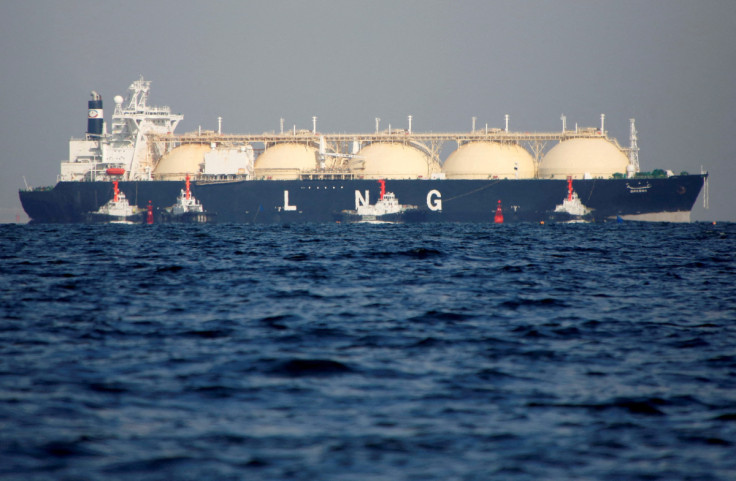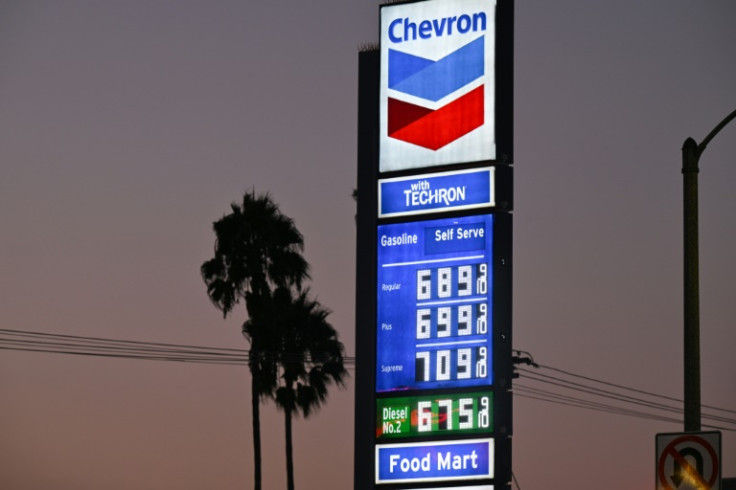Chevron Reportedly Discusses 15-Year Extension For European LNG Supply

Chevron is currently in talks to extend a variety of contracts to supply European countries with liquefied natural gas (LNG) for a period of 15 years, a company executive told Reuters.
"There's been an evolution over the past 18 months from short-term and spot supply deals to longer-term commitment," Colin Parfitt, Chevron's vice president for midstream operations, told Reuters on Wednesday, as European governments and private sector firms appear to extend their energy time horizons. Parfitt did not specify which of Chevron's contracts are actively being renegotiated.
Europe's demand for external sources of LNG grew rapidly following the Russian invasion of Ukraine, leading to a flurry of short-term supply deals initially signed in 2022.
The International Energy Agency warned in October that Europe's non-Russian LNG supply still remains below pre-war levels, and a particularly harsh winter could result in energy shortages and increased energy production from coal-fired power plants.
Natural gas accounted for 19.6% of the European Union's electricity generation in 2022, according to official data. The region has witnessed slower growth in its share of renewably-generated electricity since 2020.
U.S. LNG exports have surged as of late as energy providers attempt to fulfill Europe's gas demand, with total export volumes reaching their second-highest level in October 2023. The highest recorded level came in April 2023. The majority of U.S. LNG exports have gone to Europe in 2023, with the most common destinations being the Netherlands, the United Kingdom, France, Germany and Spain.
Chevron's discussions to extend existing LNG contracts could pave the way for further increases in U.S. LNG exports to Europe, facilitating the continent's transition away from Russian fossil fuels.
Oil Giants Going Out With A Bang

The news of Chevron potentially extending its European supply contracts comes after recent major consolidations in the oil and gas industry.
In October Chevron announced a $53 billion agreement to acquire Hess Corporation, just weeks after ExxonMobil announced a deal to buy Texas-based Pioneer Natural Resources in a $59.5 billion transaction.
Chevron's acquisition of Hess adds over 11 billion barrels of oil reserves to its portfolio from offshore fields in Guyana and shale deposits in North Carolina's Bakken Formation. ExxonMobil's acquisition of Pioneer's holdings in the Permian Basin, with over 2 billion barrels of proven reserves, will double its crude oil production from that region, the company says.
Experts argue that the consolidation and operational expansion of the U.S.' two largest energy companies by market capitalization displays the industry's enduring commitment to oil and gas extraction, at least in the medium term, and might complicate global net-zero efforts.
The Exxon-Pioneer deal "demonstrates ExxonMobil's bullishness on longish-term oil demand and prices," Wood Mackenzie analyst Tom Ellacott told Axios in October. "Bulking up materially in oil and gas also adds to the challenges of pivoting to low-carbon, especially if the energy transition accelerates."
Chevron's decision to extend its arrangement to supply European markets with LNG falls under this "longish-term" outlook for fossil fuel demand, as the company aims to expand overall oil and gas production and seeks an expanded customer base.
Chevron pledges to achieve net-zero phase 2 emissions by 2050 and hasn't publicly revised this commitment since its consolidation moves.
And still, the International Energy Agency predicts peak global consumption of fossil fuels by 2030, suggesting that the oil giants may very well have a limited window of opportunity to capitalize on their new holdings before global oil demand begins to wane.
Chevron did not respond to a request for comment from International Business Times.
© Copyright IBTimes 2025. All rights reserved.






















